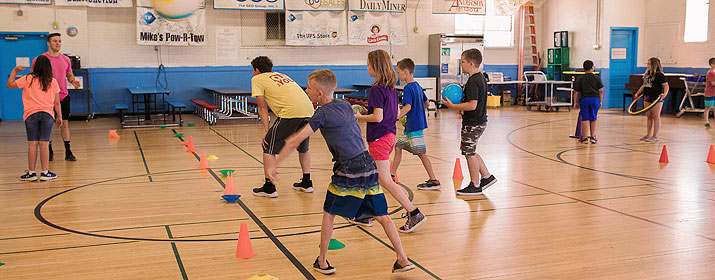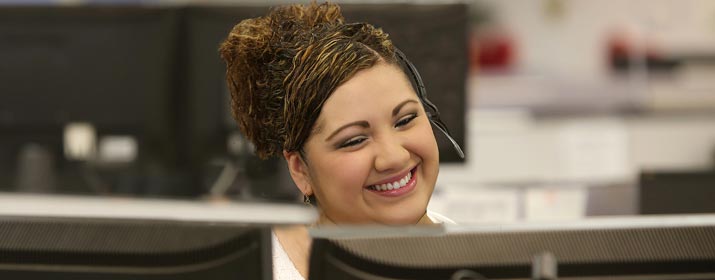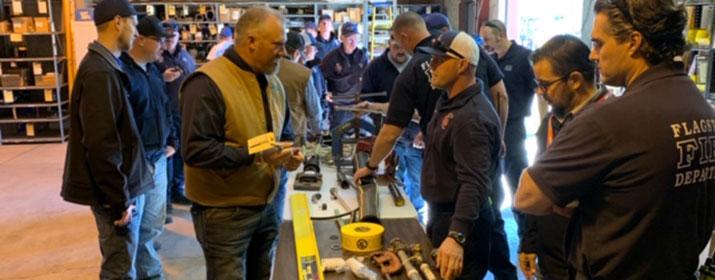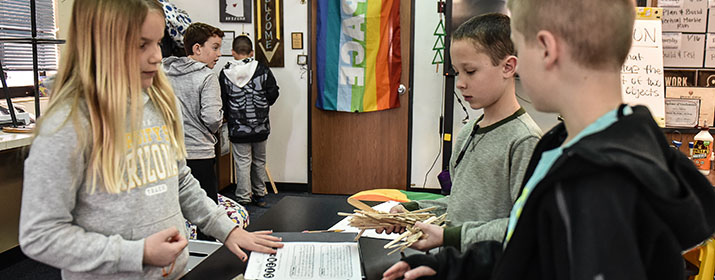
UniSource Energy Services has extended additional support to help nonprofit groups address increased community needs during the coronavirus pandemic.
In addition to increased bill payment assistance, we provided $150,000 to fund COVID-19 relief grants in our communities through the Community Foundation of Southern Arizona and the Arizona Community Foundation in Northern Arizona.
These grants have funded wide-ranging relief efforts, from caring for children to feeding senior citizens. Here are a few examples:
The CLUB for YOUth, Kingman
When schools closed in March, The CLUB for YOUth immediately transformed its after-school program to a full-day youth development center that has supported the families of essential workers. Most participants’ parents and guardians work in healthcare, food delivery or at the Arizona State Prison.
“We didn’t turn our back on anybody who needed us,” said Bill Ward, the CLUB’s Chief Executive Officer. “Without us, they wouldn’t have been able to work.”
The sudden change meant the CLUB doubled hours for staff members, who went from part-time to full-time. Instead of solely directing afternoon enrichment, the staff members also began supervising students working on school packets in the morning.
A total of 169 children, mostly in kindergarten through eighth grade, were enrolled, averaging about 50 students a day during the school year. In addition to the grant, UniSource employees donated school supplies during the spring.
For the summer, the CLUB is the only full-time youth organization offering camp, because the city Parks and Recreation canceled its usual program.
The club increased its fees, but not enough to fully cover its increased costs. At the same time, enrollment dropped, and other donors had to cut off funding because of the economic uncertainty.
The $10,000 donation from the Arizona Community Foundation was “desperately needed.”
“It was highly important. If not for that and the federal Paycheck Protection Program, the club wouldn’t have been able to survive,” Ward said. “Parents were extremely grateful that we were able to remain open.”
Threaded Together, Flagstaff
In early March, co-founder Lindsey Watson was enthusiastically putting the final touches on a grand opening party for Threaded Together, a nonprofit focused on the textile arts. Up next were community sewing classes, a program for the Boys and Girls Club and a mentorship with foster children.
But the pandemic canceled those plans. “We really pivoted and thought, how can we help at this time?” Watson said. “We know how to sew and people need sewn products right now.”
Her group started making face masks and medical gowns for hospitals and healthcare groups.
The group hired eight seamstresses and contracted with 15 others, all of whom were unemployed during the downturn. From a local hospital, they obtained recycled surgical wrap, made of polypropylene, to sew masks.
Together, the group produced 5,000 reusable face masks for community organizations and healthcare workers, as well as 2,500 masks and kits for local seamstresses on Native American reservations.
In addition, the group sewed 2,500 reusable gowns for the Flagstaff Medical Center and the nonprofit Northern Arizona Volunteer Medical Group, which assists the Indian Health Services facilities.
A $5,000 grant from the Arizona Community Foundation was used to purchase two industrial sewing machines to support gown production and to help pay for shipping masks and gowns to remote parts of the reservations.
“I don’t think we can really put into words what it has meant for our organization to receive financial support from the foundation, especially in these times of extreme uncertainty,” Watson said. “Without this grant, we would not have been able to show up for our community in the capacity that we have.”
Santa Cruz County Council on Aging, Nogales
After the Nogales senior center had to halt its in-house activities in March, the council expanded its meal service to meet the growing needs in the community.
Since then, the council has provided about 160 takeout meals daily at a drive-up delivery, more than double the 60 daily meals it previously served at the center. Also, the council extended meals to families who now make up about 60 percent of its clients, said Marco Lozoya, Manager for the Santa Cruz Council on Aging center.
In addition to the food, the council’s costs increased with the purchase of bags, disposable plates and utensils for to-go meals.
The $10,000 donation from the Community Foundation of Southern Arizona covered about one month of expenses.
“We’re not used to buying plates and takeout supplies. So, this extra money really helped with that,” Lozoya said.






